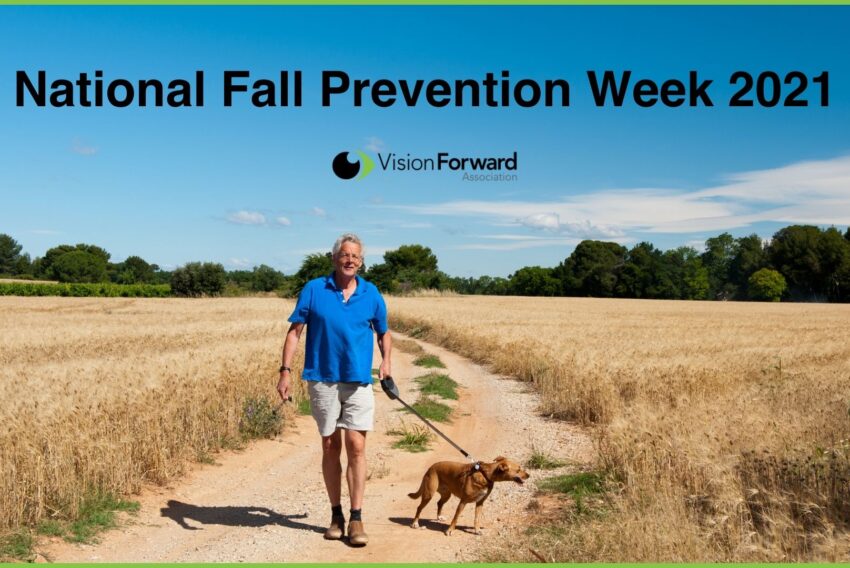National Fall Prevention Week

Posted In Categories: Living with Vision Loss
Join Hands with Vision Forward this National Fall Prevention Week
Impaired vision, low vision, and other similar symptoms are just a few factors that contribute to the risk of falls. Altogether, vision problems are one of the biggest reasons of fall injuries.
As we age, we may experience certain changes to our vision, such as a decrease in our visual acuity, an increase in our sensitivity to glare and sunlight, a decrease in our sensitivity to contrast, and difficulty adjusting to changes in light. These changes can make it difficult to see where we are going and put us at the risk of falling.
We may also experience eye diseases that can increase our risk of falls, such as macular degeneration, glaucoma, cataracts, or diabetic retinopathy – which can create blind spots, limit our visual fields or make things look blurry overall.
As per the report – Guidelines for Optometrists to Help Prevent Falls in Older Adults, some predictable risk factors are increasing age, being female, gait or imbalance impairment, chronic health conditions such as Parkinson’s, diabetes, or arthritis, being on multiple medications, sedative usage, and having any kind of vision impairment.
The report also lists some external or exterior factors such as poor lighting, trip hazards like rugs, inappropriate footwear, stairs without handrails, uneven floors, and poorly designed bathrooms.
Falls due to vision loss can be avoided by taking a few precautions like:
- Staying physically active: Adopt an exercise plan that is right for you. Regular exercise keeps your muscles stronger. It also helps keep your joints, tendons, and ligaments flexible. Mild to medium weight lifting activities like walking or climbing stairs keep you safe from osteoporosis.
- Visiting a physician regularly for your eyes and hearing abilities: The smallest changes in sight and hearing might cause a fall. Always use your glasses or contact lenses when you feel the need. If you use a hearing aid, make sure it fits well.
- Checking for the side effects of any medicines: If a drug causes sleepiness or dizziness, visit your physician immediately.
- Getting enough sleep: If you often feel sleepy, you are more likely to experience falls.
- Watching your alcohol intake: Even smaller amounts of alcohol may affect your balance. Research shows that the chances of hip fractures are more in older adults when alcohol is involved.
- Standing up slow: Getting up and moving quickly may cause your blood pressure to drop. Lowered blood pressure may make you feel wobbly.
- Being careful when walking on slippery and wet surfaces: They can be very dangerous!
Always consult your doctor if you have experienced any of the above symptoms since your last checkup, even if you haven’t fallen. Mild to medium symptoms of falls can alert your doctor to a new medical problem with your medications or eyesight that needs immediate attention.
If you experience an eye disease, consider a low vision evaluation at Vision Forward’s Low Vision Services to learn ways to maximize your vision and limit your fall risk through glare reduction and contrast enhancement strategies, lighting recommendations, optical solutions, and more.
Helpful Resources
The Center for Disease Control recommends an annual, dilated eye exam to reduce the risk of irreversible vision loss and make sure eyeglasses are updated as needed. Visit the CDC’s guidelines for maintaining healthy eyes for more information.
Learn more about preventing falls at the CDC’s Stopping Elderly Accidents Deaths & Injuries web page.
The Milwaukee County Falls Prevention Coalition (MCFPC) addresses the adult community’s risk of falling by providing access to comprehensive programs and targeted interventions. The coalition creates links between community programs and services to enhance collaborative efforts.
